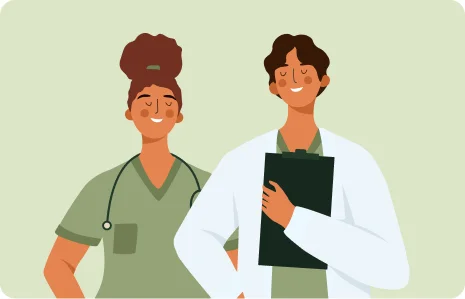Attention Deficit Hyperactivity Disorder (ADHD) is more than just a challenge in focus and attention—it often intertwines with mental health complexities, like depression. Understanding the intersection of ADHD and depression is crucial to creating the right treatment plan.
Often untreated ADHD can cause depression because the constant challenges and difficulties in managing one's attention, impulsivity, and hyperactivity can lead to feelings of frustration, low self-esteem, and a sense of inadequacy, ultimately contributing to the development of depressive symptoms. Additionally, the chronic stress and daily struggles associated with untreated ADHD can disrupt relationships, academic or professional performance, and overall quality of life, further increasing the risk of depression. Therefore, addressing and managing ADHD symptoms can be crucial in preventing or alleviating depressive symptoms in individuals with this condition.
ADHD and the Emotional Rollercoaster
Individuals with ADHD often contend with a rollercoaster of emotions. The challenges in executive function, impulsivity, and attention regulation can lead to frustration, self-doubt, and feelings of inadequacy. This emotional turbulence becomes a fertile ground for the emergence of depressive symptoms.
Executive Function Challenges
The executive functions affected by ADHD—such as planning, organization, and time management—can become significant stressors. Difficulties in meeting expectations, whether at work, school, or in personal endeavors, may contribute to a sense of failure and trigger or exacerbate depressive feelings.
Rejection Sensitivity
Many individuals with ADHD experience heightened rejection sensitivity—a hypersensitivity to perceived criticism or rejection. This can lead to a pervasive fear of failure and a constant anticipation of negative feedback, fostering an emotional echo chamber that contributes to depressive thought patterns.
Chronic Underachievement
ADHD can create a persistent sense of underachievement. Despite possessing immense potential, individuals may struggle to meet societal or personal expectations. This chronic underachievement can be a breeding ground for feelings of worthlessness and contribute to the development of depression.
Coexisting Conditions
ADHD and depression often coexist, creating a complex interplay between symptoms. The challenges in concentration and focus inherent in ADHD can exacerbate feelings of hopelessness and helplessness characteristic of depression. Conversely, the lethargy and lack of motivation associated with depression can compound the difficulties in managing ADHD symptoms.
Loneliness in a Crowd
ADHD can lead to social difficulties, and individuals may find themselves feeling isolated even in social settings. The struggle to connect with others and maintain relationships may contribute to feelings of loneliness, a significant factor in the development and perpetuation of depression.
Treatment Challenges
Treating both ADHD and depression requires a nuanced approach. While stimulant medications may address ADHD symptoms, they may not directly alleviate depressive symptoms. Comprehensive treatment plans often involve a combination of medication, therapy, and lifestyle adjustments tailored to address the unique challenges presented by the dual diagnosis.
Holistic Support and Understanding
Breaking the cycle of ADHD and depression involves holistic support and a deep understanding of the interconnected nature of these conditions. Psychoeducation, counseling, and a supportive environment that acknowledges the challenges of both disorders are crucial components of fostering mental well-being.
When entwined, ADHD and depression create a unique set of challenges that demand empathy and resilience. Recognizing the intricate dance between these conditions allows for a more compassionate approach to mental health. By fostering understanding, seeking tailored interventions, and embracing a supportive community, individuals can navigate the complex intersection of ADHD and depression with greater resilience and hope.








